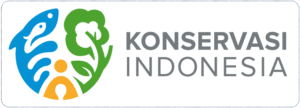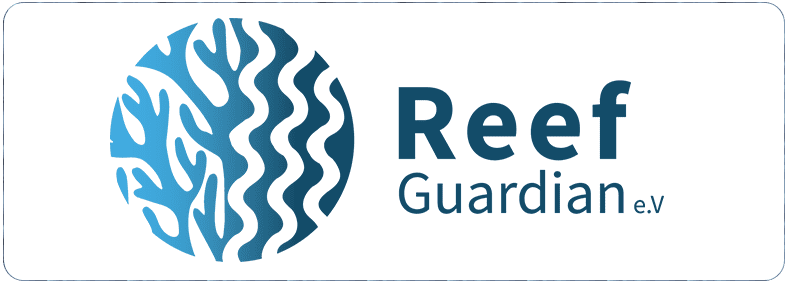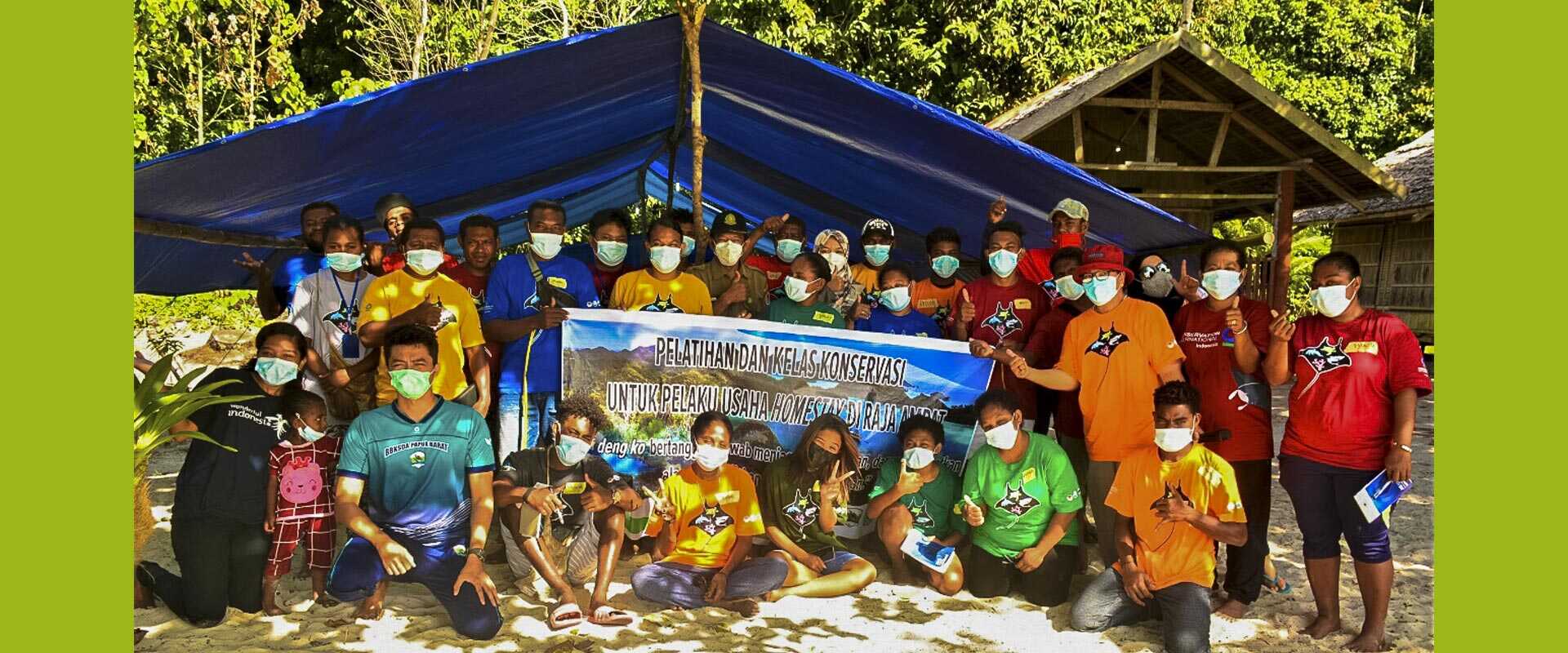Training And Conservation Class For Guides And Homestays’ Operators: Reported by: Bertha Matatar* & Rens Lewerissa** Edited by: Nikka Gunadharma***
As an effort to preserve Raja Ampat’s natural resources through the implementation of environmental-friendly principles of sustainable tourism, stakeholders collaborated in organizing training and conservation classes in Yenbabo, Friwen Village, for tourist guides working in Raja Ampat from the 07th to the 09th, and for homestay owners/operators from the 11th until the 13th of October, 2021. A total of 62 participants attended both events.
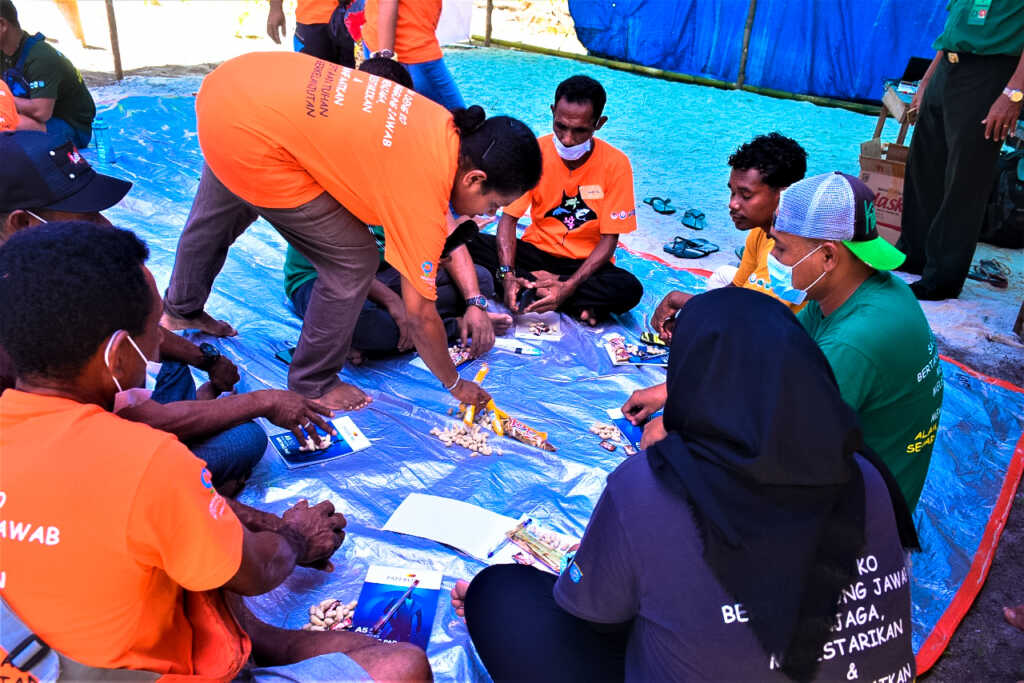
One of the facilitators from CI Indonesia, Bertha Matatar, was preparing one of the games – one method in presenting topic for the trainings. (Photo by: CI Indonesia/2021)
Those collaborative events were organized by several, cross-government institutions that manage different areas in Raja Ampat, the Ministry of Environment and Forestry’s Office of Natural Resources’ Conservation in West Papua**** (manages no less than nine working areas within the regency), Ministry of Marine and Fisheries’ Office of Marine and Coastal Resources’ Management in Sorong*****, West Papua Province Government’s Raja Ampat Marine Park Authority (manages six Marine Protected Areas (MPAs), and the Raja Ampat Regency Government’s Tourism Agency, as their host which manages several tourism destinations as well.
Area Section 1’s Head from Office of Natural Resources’ Conservation in West Papua, Partolongan Manalu, S.Hut., commented that these events were well organized because they are able to align perceptions with local guides and homestay owners/operators, while adding, “Because what we conveyed (through the trainings) were aimed directly to tourism professionals and business owners, we hoped that there will be no more illegal trafficking of protected fauna in Raja Ampat.”
Besides government institutions, the events’ organizers involved Conservation International (CI) Indonesia that works in Raja Ampat as well. Members of Raja Ampat’s Indonesia Tourist Guide Association, Raja Ampat’s community of women divers (Molo Ombin Raja Ampat or MORA), and Transformasi Ekonomi Kampung Terpadu (or TKAD, can be translated literally as Integrated Economic Transformation Villages), participated in the event on 07th to 09th, while members of Raja Ampat’s homestay owners’ association were involved for the latter event.
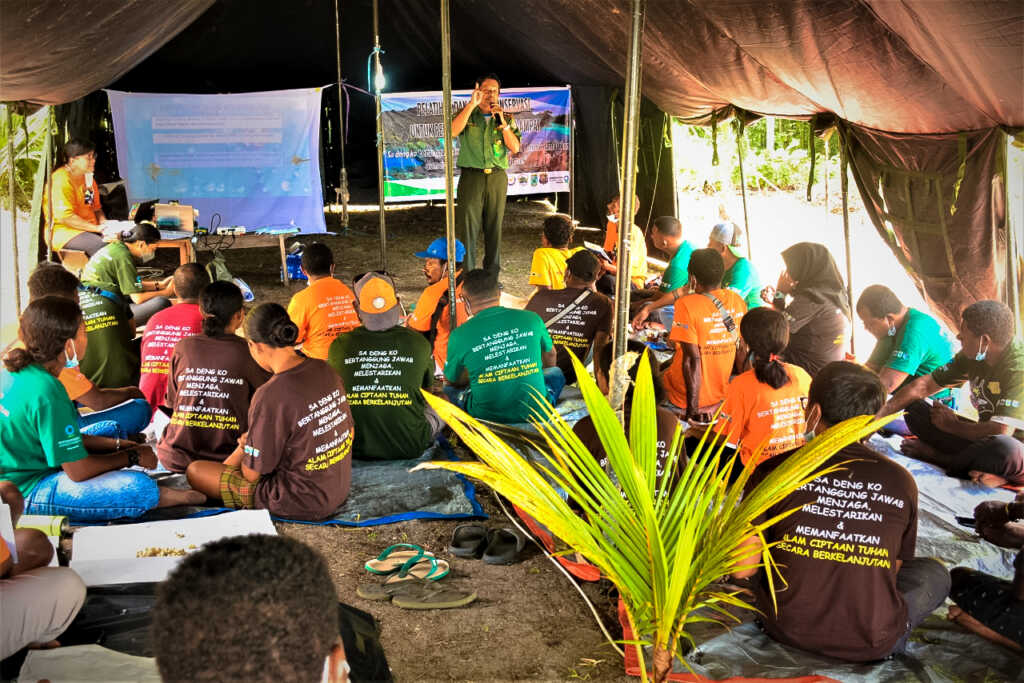
Partolongan Manalu, S.Hut., Area Section 1’s Head from West Papua’s Natural Resources Conservation Office, conveyed his direction during the opening session of the training on the 07th of October, 2021. (Photo by: CI Indonesia/2021)
CI Indonesia’s Bird’s Head Seascape (BHS) Tourism and Capacity Building Manager, Meidiarti Kasmidi, hoped that through this event tourist guides and homestay owners would come to know and understand how important conservation is, especially the conservation areas and their management in Raja Ampat, (the importance) of protected biotas, and to identify their roles in conservation as well, before adding, “It is also important for them to understand tourism activities that will not damage the environment, but generate economic benefit.”
Both training classes covered topics on hospitality in tourism, terrestrial conservation, the benefits of conservation and sustainable tourism, and the marine ecosystem – the material was presented in the form of games for participants, where they learned about organic and non-organic waste and their impacts on the environment, MPAs’ management, protected marine biotas, including topics on tourist guide’s role in conservation.
Between the presentations, participants were encouraged to discussed relevant issues related to tourism in Raja Ampat, one of those interesting topics were about entrance fees for tourists such as the Environmental Service Maintenance Fee implemented by the Raja Ampat Marine Park Authority and the tourism retribution collected by the Raja Ampat Regency Tourism Agency’s technical implementation unit.
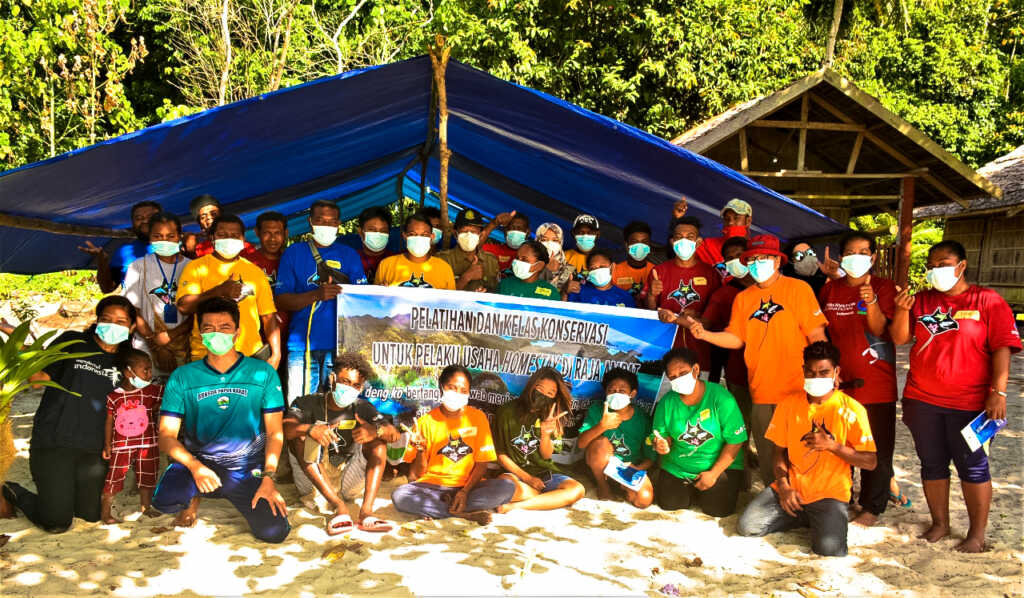
Participants from the first training, conducted in 07th to 09th of October 2021, taking group photo subsequent to one of the class sessions. (Photo by: CI Indonesia/2021)
One of the participants, who is also the Chairwoman of Raja Ampat’s Indonesia Tourist Guide Association, Ranny Iriani Tumundo, shared, “We are always firm (with our clients) related to the purchase of Environmental Service Maintenance Fee and the ticket from Raja Ampat Regency Government,” as she continued, “We always emphasize to our guides that they always obey the tourism rules in Raja Ampat, and (provide) understanding for guests (in relation to) the allotment of Environmental Service Maintenance Fee and tourism retribution.” Ranny also stated that participants keep reminding tourists of the importance of conservation so they are not merely enjoying the beauty of nature, but also to being responsible towards nature: the legacy for our children and grandchildren.
Meanwhile, one participant representing the Raja Ampat’s homestay owners association, Beni Mambrasar, emphasized, “After participating in this training, it motivates me to implement (the knowledge gained through this training) to members of the community, homestay owners, and birdwatching guides in my village; so they can run their tourism businesses better.”
Some of the output generated from the discussions between the organizers and participants in those two trainings covered the tourist guides’ role as information providers on conservation areas in Raja Ampat – including the rules, regulations, and all the entrance fees for the tourists, and how to correct tourists’ bad behaviors.
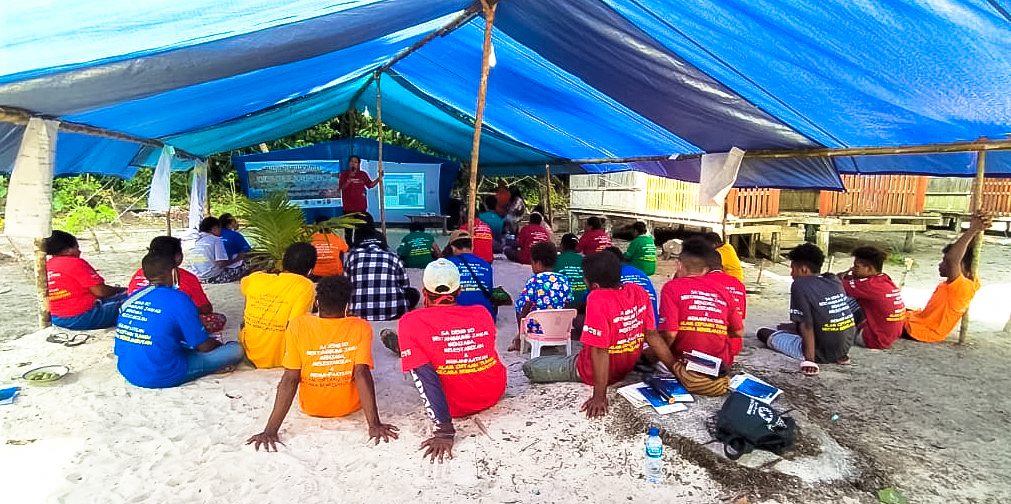 Class session during one of the trainings conducted in Yenbabo, Friwen Village. (Photo by: CI Indonesia/2021).
Class session during one of the trainings conducted in Yenbabo, Friwen Village. (Photo by: CI Indonesia/2021).
While participants that are also homestay owners/operators in Raja Ampat agreed to ensure their guests’ compliance towards the rules within conservation areas, and as information providers related to those protected areas for their guests as well.
* Bertha Matatar is CI Indonesia’s BHS Capacity Building Coordinator
** Rens Lewerissa is Raja Ampat Program’s Communication and Outreach Officer for CI Indonesia
*** Nikka Gunadharma is CI Indonesia Raja Ampat Program’s Communication and Outreach Coordinator
**** West Papua’s Office of Conservation of Natural Resources (Balai Besar Konservasi Sumber Daya Alam Papua Barat or BBKSDA Papua Barat in Bahasa Indonesia), which nested under the Directorate General of Natural Resources and Ecosystem Conservation, is one of the Ministry of Environment and Forestry’s technical unit in West Papua. Within its core function, BBKSDA Papua Barat, is tasked to manage several conservation areas in West Papua Province, which consists of several types of conservation areas from Wildlife Reserve, Nature Preserve, Nature Park, to conservation on specific flora and fauna both within and outside conservation areas.
***** Sorong’s Office of Marine and Coastal Resources is one of the technical implementation units under – and answers to, the Ministry of Marine and Fisheries’ Directorate General of Marine Spatial Management. Some of the main tasks of Sorong’s Office of Marine and Coastal Resources, which focuses on the islets’, marine, and coastal including the ecosystem within, are: implementation of protection, preservation, and utilization efforts; disasters’ mitigation, rehabilitation, and pollution mitigation efforts; implementing conservation efforts on fish genetic, species, and habitat; implementation of supervision efforts on protected fish species trading and its traffic, and; implementing efforts in capacity building for coastal and islets’ communities. Working areas for this particular office covers the provinces of Maluku, Northern Maluku, West Papua, and Papua.
****** Raja Ampat Marine Park Authority is one of the technical implementation units nested under the West Papua Province Government’s Agency of Marine and Fisheries, and is authorized for management efforts towards six MPAs in Raja Ampat. Those six MPAs are: Asia and Ayau Islands MPA; Mayalibit Bay MPA; Dampier Strait MPA; Kofiau-Boo Islands MPA; Misool Islands MPA, and; Fam Islands MPA. Raja Ampat Marine Park Authority also provided technical assistance for Wayag’s Monitoring Post in West Waigeo Islands Marine Reserve.















